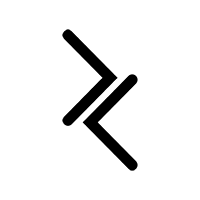Over 15 years ago, when I first started formally being a person who makes things, there was no such thing as a "content creator". The use of the word "creator" was never something you identified with, nor was it a career you could go into. The term "content" wasn't even close to the kind of catch-all phrase it is in our current social media-laden world. The general zeitgeist of the creative community had yet to create such labels or even such activities similar to what we know today.
Back then, people were "artists". They were "creative people". They were "creatives".
Since then, creativity, and the entire industry that surrounds it, has accelerated at a pace unseen in history, and now everyone is a creator, for better or worse.
I find some happiness in the fact that everyone is now armed with a camera in pocket and an avenue in which to share their photographs. I love that there has never been more avenues to write about something and have someone read it. It's fantastic that people can enjoy recording themselves dancing and posting it on the internet.
Technology and innovation are awesome.
But somewhere along the way, alongside the democratisation of creativity, the old idea of what it is to be a "creative" has lost much of its meaning. And, not to sound like a boomer, some ideologies deserve to be preserved as we move along the speeding train of innovation
One of those is the idea of being a creative person. A person who enjoys discovery and expression and problem-solving. A person who cannot help but move through life and learn all the many gifts it has along the way. Someone who craves originality and forward-thinking. A soul who cares about the craftsmanship and the artistic nature of whatever they created. The creative who obsessed over the resonance of the thing they made. Someone whose life is as much art as it is life.
This is the creative of the nineties and noughties. A multi-skilled, discipline-agnostic mindset. The ability to wield many skills and mesh them together into something unique.
When I find people like that in 2023 — people who are photographers but have also taught themselves design or illustration, or illustrators that have taught themselves videography or CG, or CG artists who have taught themselves traditional media like painting or drawing but also know how to build a website — these are the people who make me stop and gush a little about how amazing they are.
Because ironically, even though we now have more terms to define ourselves as creative people at a level we've never had, the advent of social media has funnelled creativity into a few well-trodden lanes optimised for clicks and taps, likes and comments.
While I don't have any problem with other people who do that — you do you, whatever it is — What I am trying to advocate for is creativity as a lifestyle because I've seen what it can do to your life and to your work.
In 2010, Kirby Ferguson created a 4-part documentary series named "Everything is a remix", and in the 13 years since its release, my understanding of creativity has never been quite the same.
See, the more creative skills you have, the more unique work you can make. Creativity, by its nature, is the art of taking two (or more) seemingly unrelated things and combining them together in a way that's new and fresh.
The creative of old was a person who (consciously or instinctively) knew that. They deliberately learned skills adjacent to their primary skill. They absorbed themselves in the influence and inspiration of media and art within or adjacent to their principal thinking methods. Divergent thinking and uniqueness was the name of the game. And engaging in it meant that the new work would come with a flavour and a variance unlike anything before it.
It's easier than ever to scroll through your favourite short-form video app and, within 5 minutes, pick out several "trends" — variations of the same thing. This is fine, and fun, and whatever. But creating or consuming this content doesn't push you forward as a creative person as much as learning how to draw, or discovering photography for the first time, or finding the art in code, or any of the thousands of other auxiliary skills you could learn to bolster your main creative avenue and drive.
As a teen, I stumbled upon a saying that "art is cyclic". I can't remember who said it or in what context it was said, but having been a creative person for coming into two decades, I can see that indeed, cycles are everywhere in art. By and large, the creative cycle currently is a return to the idea of "fitting in"; we're so defined by the lanes we engage in that we become comfortable and operate solely within them.
But as always, to break any mold, to stand out, to be different, is to do the opposite of what everyone else is doing. Rather than observing how everyone is fitting in to certain tropes, types, or trends, I'd encourage you to follow your individualism, find and pursue the many things you're interested in, upskill in them, and then blend them together in a way that no one else has done before. That's where you'll find your uniqueness.
Good luck out there, creative.
— Pat


